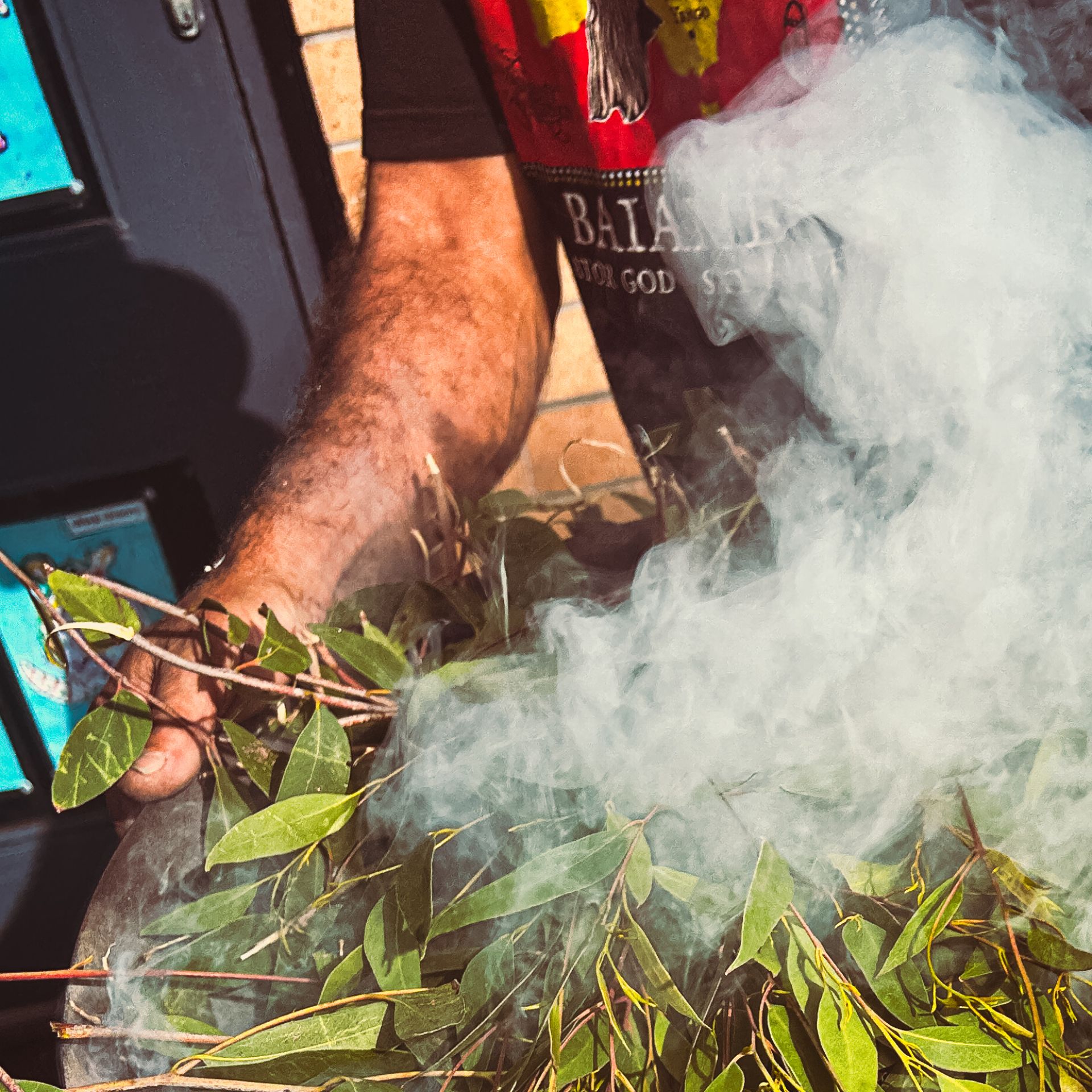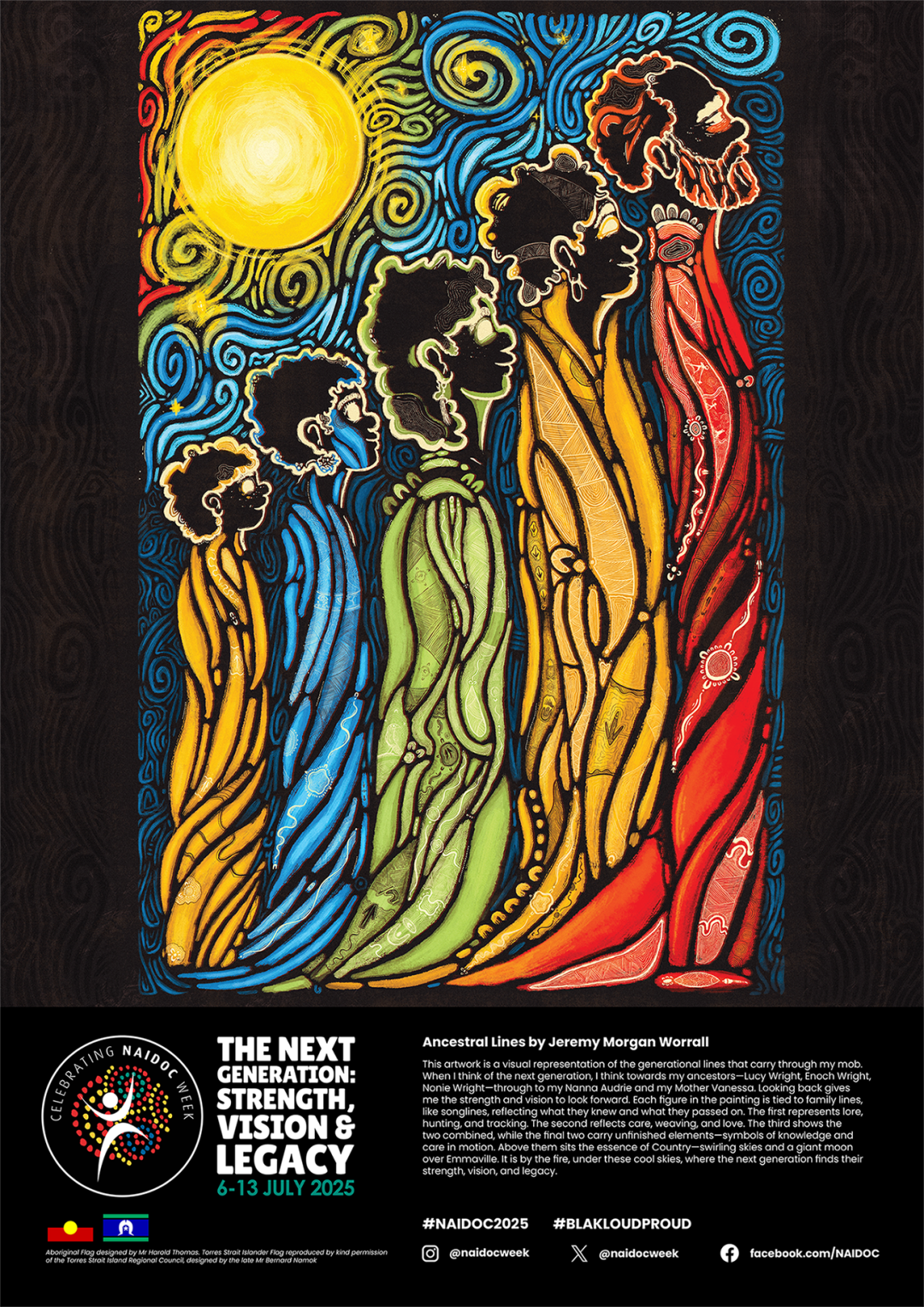NAIDOC Week 2025: Celebrating First Nations Culture, Community and Connection
Every year in July, people across Australia come together to honour and celebrate the cultures, histories, and achievements of Aboriginal and Torres Strait Islander peoples during NAIDOC Week. In 2025, NAIDOC Week runs from 6–13 July, and it presents an important opportunity for all of us — as individuals, communities, schools, and workplaces — to listen, learn, reflect, and participate.
Whether you’re attending a local event or simply taking time to learn about the Traditional Custodians of the land you live on, NAIDOC Week 2025 is a chance to deepen your connection with First Nations peoples and cultures.

Image captured during a smoking ceremony at Bellambi Public School
What is NAIDOC Week?
NAIDOC Week stands for the National Aborigines and Islanders Day Observance Committee, though today the name refers more broadly to a week-long celebration across Australia. It’s a time to recognise the enduring strength, resilience and cultural richness of Aboriginal and Torres Strait Islander communities.
While it’s now marked by festivals, art exhibitions, concerts, community events, and educational activities, NAIDOC Week has its roots in activism and the struggle for justice.
The story of NAIDOC Week began on 26 January 1938, when Aboriginal leaders organised a Day of Mourning to protest Australia Day and the treatment of Indigenous peoples. This protest, one of the first major civil rights gatherings in the world, called for equality, recognition, and respect. In the years that followed, what started as a day of protest gradually transformed into a broader movement.
By the 1950s, the event evolved into Aborigines Day, and in 1955, it shifted from a day of mourning to a celebration of Aboriginal culture, history and achievement. Over time, the observance expanded to a full week and became known as NAIDOC Week — a national event recognised by communities across the country.
Why NAIDOC Week Matters
NAIDOC Week isn’t just a cultural celebration — it’s a vital reminder of the strength and survival of the oldest living cultures in the world. It’s also a call to action: to listen to First Nations voices, to acknowledge the injustices of the past and present, and to celebrate the incredible contributions Aboriginal and Torres Strait Islander people continue to make across all areas of life — from art and sport to politics, education, science, and community leadership.
For non-Indigenous Australians, NAIDOC Week is an opportunity to build knowledge, empathy, and genuine relationships with First Nations communities. It’s a time to reflect on our shared history and to walk together toward a more inclusive and just future.
The Sydney Street Choir has been changing lives through the power of song since 2001. We are a musical community that supports men and women dealing with homelessness, mental illness, addiction and/or social disadvantage.
How to Celebrate NAIDOC Week 2025
Whether you’re new to NAIDOC Week or looking for ways to deepen your engagement this year, there are many ways to get involved. Below are some practical and meaningful activities you can take part in:
In Your Workplace or School
- Display the official NAIDOC Week 2025 poster in communal spaces or classrooms.
Download your own poster here - Host a flag-raising ceremony and acknowledge the Traditional Custodians of the land.
- Invite local Elders or First Nations speakers to deliver a Welcome to Country or share stories.
- Run a trivia quiz featuring Aboriginal and Torres Strait Islander history and achievements.
- Study a notable Indigenous Australian, such as an artist, activist, athlete, or community leader.
- Commission or collaborate on an art project with a local Aboriginal or Torres Strait Islander artist.
In the Community
- Attend local NAIDOC Week events, such as marches, concerts, exhibitions, or cultural workshops.
- Organise a community BBQ or luncheon to bring people together in celebration and reflection.
- Visit Indigenous sites of significance in your area to learn more about the land and its history.
- Learn the local Aboriginal language, including the meanings of place names or common greetings.
- Support Indigenous-owned businesses, creators, and makers — whether through art, food, or fashion.
At Home
- Watch films or documentaries by First Nations filmmakers.
- Read books by Aboriginal and Torres Strait Islander authors, including children’s books, fiction, memoirs, and poetry.
- Listen to Indigenous musicians and storytellers, discovering the diversity of voices across genres.
- Research the Traditional Owners of the land where you live using online tools or your local library.
- Reflect on your own relationship to Country, history, and identity — and what reconciliation means to you.
At BROOK, we’ll be recognising NAIDOC Week 2025 by attending a local community celebration in Bellambi. It’s one of many ways we’re showing our support, respect and solidarity with Aboriginal and Torres Strait Islander communities.

2025 NAIDOC Week Poster created by the National Aborigines and Islanders Day Observance Committee
Keep the Conversation Going
While NAIDOC Week takes place over seven days in July, its messages and meaning are year-round. Celebrating First Nations cultures and histories should not be confined to one week — it’s something we can all commit to throughout the year, in both big and small ways.
Engaging with NAIDOC Week 2025 is about more than attending an event or ticking a box. It’s about showing up with respect, being open to learning, and taking action that supports truth-telling, cultural recognition, and community empowerment.
As we come together to celebrate this year’s theme and events, let’s also commit to the ongoing work of reconciliation — because understanding our history is the first step to building a better future, together.
Learn More
To find out what’s happening in your area during NAIDOC Week 2025, visit the official NAIDOC Week website or contact your local council or Aboriginal community organisation.
Let NAIDOC Week be your starting point — or your next step — on a journey of learning, listening, and connection.
